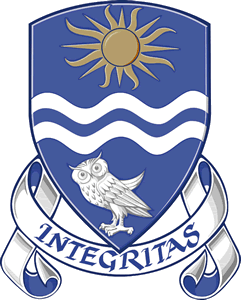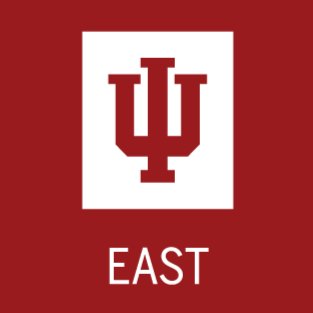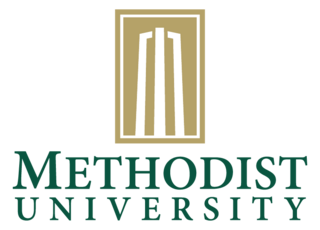Related Research Articles

George Mason University (GMU) is a public research university in Fairfax County, Virginia, United States. Located in Northern Virginia near Washington, D.C., the university is named in honor of George Mason, a Founding Father of the United States.

Interdisciplinarity or interdisciplinary studies involves the combination of multiple academic disciplines into one activity. It draws knowledge from several fields like sociology, anthropology, psychology, economics, etc. It is related to an interdiscipline or an interdisciplinary field, which is an organizational unit that crosses traditional boundaries between academic disciplines or schools of thought, as new needs and professions emerge. Large engineering teams are usually interdisciplinary, as a power station or mobile phone or other project requires the melding of several specialties. However, the term "interdisciplinary" is sometimes confined to academic settings.

A liberal arts college or liberal arts institution of higher education is a college with an emphasis on undergraduate study in the liberal arts of humanities and science. Such colleges aim to impart a broad general knowledge and develop general intellectual capacities, in contrast to a professional or vocational curriculum. Students in a liberal arts college generally major in a particular discipline while receiving exposure to a wide range of academic subjects, including general sciences as well as the traditional humanities subjects taught as liberal arts. Although it draws on European antecedents, the liberal arts college is strongly associated with American higher education, and most liberal arts colleges around the world draw explicitly on the American model.

Liberal arts education is a traditional academic course in Western higher education. Liberal arts takes the term art in the sense of a learned skill rather than specifically the fine arts. Liberal arts education can refer to studies in a liberal arts degree course or to a university education more generally. Such a course of study contrasts with those that are principally vocational, professional, or technical, as well as religiously based courses.

Humanities are academic disciplines that study aspects of human society and culture, including certain fundamental questions asked by humans. During the Renaissance, the term "humanities" referred to the study of classical literature and language, as opposed to the study of religion, or "divinity". The study of the humanities was a key part of the secular curriculum in universities at the time. Today, the humanities are more frequently defined as any fields of study outside of natural sciences, social sciences, formal sciences, and applied sciences. They use methods that are primarily critical, speculative, or interpretative and have a significant historical element—as distinguished from the mainly empirical approaches of science.
A bachelor's degree or baccalaureate is an undergraduate degree awarded by colleges and universities upon completion of a course of study lasting three to six years. The two most common bachelor's degrees are the Bachelor of Arts (BA) and the Bachelor of Science. In some institutions and educational systems, certain bachelor's degrees can only be taken as graduate or postgraduate educations after a first degree has been completed, although more commonly the successful completion of a bachelor's degree is a prerequisite for further courses such as a master's or a doctorate.

Nipissing University is a public university located in North Bay, Ontario, Canada. The campus overlooks Lake Nipissing.
Philosophy, politics and economics, or politics, philosophy and economics (PPE), is an interdisciplinary undergraduate or postgraduate degree which combines study from three disciplines. The first institution to offer degrees in PPE was the University of Oxford in the 1920s. This particular course has produced a significant number of notable graduates such as Aung San Suu Kyi, Burmese politician and former State Counsellor of Myanmar, Nobel Peace Prize winner; Princess Haya bint Hussein, daughter of the late King Hussein of Jordan; Christopher Hitchens, the British–American author and journalist; Will Self, British author and journalist; Oscar-winning writer and director Florian Henckel von Donnersmarck; Michael Dummett, Gareth Evans, Philippa Foot, Christopher Peacocke, Gilbert Ryle, and Peter Strawson, philosophers; Harold Wilson, Edward Heath, David Cameron, Liz Truss and Rishi Sunak, Prime Ministers of the United Kingdom; Hugh Gaitskell, Michael Foot, William Hague and Ed Miliband, former Leaders of the Opposition; former Prime Ministers of Pakistan Benazir Bhutto and Imran Khan; and Malcolm Fraser, Bob Hawke and Tony Abbott, former Prime Ministers of Australia. The course received fresh attention in 2017, when Nobel Peace Prize winner Malala Yousafzai earned a place.

Environmental studies is a multidisciplinary academic field which systematically studies human interaction with the environment. Environmental studies connects principles from the physical sciences, commerce/economics, the humanities, and social sciences to address complex contemporary environmental issues. It is a broad field of study that includes the natural environment, the built environment, and the relationship between them. The field encompasses study in basic principles of ecology and environmental science, as well as associated subjects such as ethics, geography, anthropology, public policy, education, political science, urban planning, law, economics, philosophy, sociology and social justice, planning, pollution control, and natural resource management. There are many Environmental Studies degree programs, including a Master's degree and a Bachelor's degree. Environmental Studies degree programs provide a wide range of skills and analytical tools needed to face the environmental issues of our world head on. Students in Environmental Studies gain the intellectual and methodological tools to understand and address the crucial environmental issues of our time and the impact of individuals, society, and the planet. Environmental education's main goal is to instill in all members of society a pro-environmental thinking and attitude. This will help to create environmental ethics and raise people's awareness of the importance of environmental protection and biodiversity.

Indiana University East is a public university in Richmond, Indiana, a regional campus of Indiana University that serves the eastern Indiana and western Ohio area. Established in 1971 by the Indiana University Board of Trustees, IU East enrolls over 4,000 students on its five-building, 174-acre campus and in online classes. IU East has 60 academic degree programs, offering bachelor's and master's degree programs and certificates in areas of Business and Economics, Education, Humanities and Social Sciences, Natural Science & Mathematics, Informatics, General Studies, Nursing and Health Sciences, and Social Work.

Uniformed Services University of the Health Sciences (USU) is a health science university and professional school of the U.S. federal government. The primary mission of the school is to prepare graduates for service to the U.S. at home and abroad as uniformed health professionals, scientists and leaders; by conducting cutting-edge, military-relevant research; by leading the Military Health System in key functional and intellectual areas; and by providing operational support to units around the world.
The Marianna Brown Dietrich College of Humanities and Social Sciences is the liberal and professional studies college and the second-largest academic unit by enrollment at Carnegie Mellon University in Pittsburgh, Pennsylvania, USA. The college emphasizes study through rigorous analysis and technology of the behaviors, institutions, and beliefs that constitute the human experience, describing itself as “not an ordinary liberal arts school.” The college was named for Marianna Brown Dietrich, the mother of philanthropist William S. Dietrich II, after his donation of $265 million to the university in 2011 – the largest single donation in Carnegie Mellon history.

The University of Pécs is one of the largest higher education institutions in Hungary. The history of the university began in the Middle Ages, when in 1367, at the request of King Louis I the Great, Pope Urban V granted permission to found the institution. This made it the first university in Hungary and the fourth in Central Europe. The official successor of the university is the Elisabeth University of Pozsony (Bratislava), founded in 1912. In 1921, after Bratislava became part of Czechoslovakia, the university was moved to Pécs in 1951, the Faculty of Medicine separated and existed as an independent institution, until it merged with the Janus Pannonius University in 2000, which united the other faculties in Pécs. This is how the current University of Pécs was created.
A Bachelor of Independent Studies is an undergraduate academic degree. Its program of studies is unique to each student, and the individual curricula are largely determined by each student. It may focus in any field, and generally has two phases: a pre-thesis phase, in which the student takes courses or reading courses, and a thesis phase, in which the student completes a substantial thesis. A similarly name Bachelor of Interdisciplinary Studies is also awarded by some universities. The degree can be considered akin to a degree in general studies and is becoming increasingly popular in the United States. The Bachelor of Independent Studies targets adult learners previously unable to complete their educational pursuits, through transfer credit options and interdisciplinary concentrations tailored to each student.

Methodist University is a private university that is affiliated with the North Carolina Annual Conference of the United Methodist Church and located in Fayetteville, North Carolina. It is accredited by the Southern Association of Colleges and Schools Commission on Colleges.
Peter Joseph Boettke is an American economist of the Austrian school. He is currently a professor of economics and philosophy at George Mason University; the BB&T Professor for the Study of Capitalism, vice president for research, and director of the F.A. Hayek Program for Advanced Study in Philosophy, Politics, and Economics at the Mercatus Center at George Mason University.

The Schar School of Policy and Government is the public policy school of George Mason University, a public research university in the Commonwealth of Virginia near Washington, D.C.

The College of Natural Science (NatSci) at Michigan State University is home to 27 departments and programs in the biological, physical and mathematical sciences.

A Bachelor of Science is a bachelor's degree that is awarded for programs that generally last three to five years.

The Jimmy and Rosalynn Carter School for Peace and Conflict Resolution is a constituent college of George Mason University based near Washington, D.C., United States, specializing in peace and conflict studies with locations in Arlington, Fairfax, and Lorton, Virginia, as well as at the Mason Korea campus in Songdo, South Korea. On July 1, 2020, the School for Conflict Analysis and Resolution was renamed the Jimmy and Rossalyn Carter School for Peace and Conflict Resolution, following an announcement by the university in March 2020.
References
- 1 2 "A New Name for New Century College". Fourth Estate. Retrieved 4 May 2016.
- ↑ George Mason University. "College of Humanities and Social Sciences | Departments and Programs". Chss.gmu.edu. Archived from the original on 2008-09-23. Retrieved 2012-11-16.
- ↑ "New Century College Celebrates 10th Anniversary – The Mason Gazette - George Mason University". Gazette.gmu.edu. 2004-09-20. Retrieved 2012-11-16.
- ↑ "2016-2017 Catalog". George Mason University Catalog. Archived from the original on 2016-08-28. Retrieved 4 May 2016.
- ↑ "Integrative Studies Program". George Mason University Catalog. Archived from the original on 2016-08-28. Retrieved 4 May 2016.
- ↑ "2016-2017 catalog". George Mason University Catalog. Archived from the original on 2016-08-28. Retrieved 4 May 2016.
- ↑ "SAIL Website". Social Action and Integrative Learning. Retrieved 4 May 2016.
